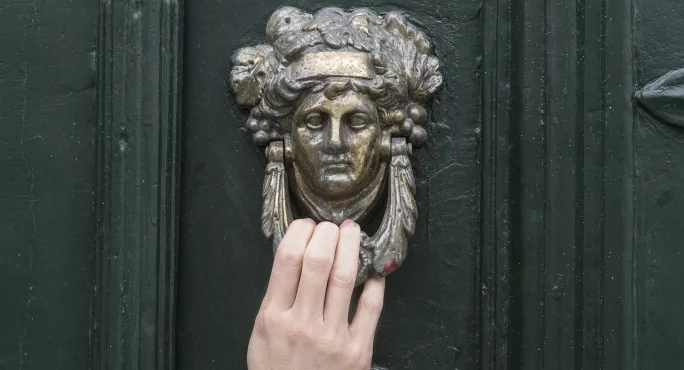School visits remind us of the complexity and power of education

Plenty of headteachers have told me over the years that it’s crucial for them to drop into classrooms regularly, to remind themselves of what their job is fundamentally about.
We apply a similar principle to our work at Tes Scotland: if we’re writing about schools, we really should be regular visitors to schools.
That, of course, did not happen for a long time from March 2020 onwards. Before Covid-19, we made frequent visits to schools and the benefits were clear. Beyond the specific issue or project that might have drawn us there, we also gained general insight into life in a school, and the many challenges - but also the rewards - that schools could present to staff and pupils.
This year, we aim to visit schools with a regularity that we’ve not previously managed this decade. Most recently, I was at Canal View Primary in Edinburgh, where I saw pupils revelling in an “immersive learning experience”.
- PSE and guidance: Pastoral capacity in Scottish schools and the case for a national review
- Teacher numbers: Subject by subject change over 15 years in Scotland
- CPD: Why research is integral to your teaching role
Two years ago, the school hosted the Lost Lending Library from immersive theatre specialists Punchdrunk Enrichment - an independent charity founded to take the pioneering practice of Punchdrunk into schools - in which pupils could use their imagination to explore a 314-floor library and solve riddles and puzzles.
Now, staff at the school have taken inspiration from that experience and shown their own ingenuity by running an immersive murder mystery for the school’s two P6 classes.
It’s been going since January, and the pupils I spoke to - Craig, Layla and Raeya - brimmed with enthusiasm, explaining eloquently why they thought learning about blood or DNA during their investigations, for example, was more engaging when it drove them towards a clear end goal.
“It makes us want to do things more because we know there’s a reason for it,” as Raeya, put it.
The big takeaway for me here goes beyond purely the potential benefits of this sort of immersive interdisciplinary project. Whatever the details of a specific project, it was a reminder of all that you see when you visit a school.
Walk into a good school and almost immediately you feel yourself stepping into a caring, nurturing community: the calm industry of the office staff; the reassuring tones of the member of support staff to an upset child; the teachers deftly teasing out insight from pupils who didn’t think themselves capable of it.
Richness of school life
This is education in three dimensions, rich in sights and sounds: a teeming wall of art; the buzzy chatter of a small group of pupils deep in concentration; a frowning child perched on the edge of their seat as an idea takes shape.
We should, of course, take care not to idealise schools. These are difficult times, as mounting concerns about local authority budgets, pupil behaviour and teacher workload constantly remind us.
Yet, despite all that, teachers are pulling out the stops to minimise the impact on pupils. To see the skilled, sensitive interaction of teachers with pupils at Canal View, was a reminder of the power of the school experience.
You can interview school staff or read an inspection report and come away with a reasonably good sense of what a school is like. But when you wander through classrooms and corridors and see a school day unfolding, you get much more besides.
Eyes and ears
On my first visit to a school for Tes many years ago, a former editor told me to “remember the eyes and ears”. She meant for me to be receptive to all the telling details of school life that you just won’t encounter unless you walk through a school’s front door.
Being at a school in person also allows you to hear the unselfconscious wit and wisdom of pupils, and the frank insight of teachers and school leaders, which is always more likely to surface when you talk face to face.
Many people feel they know what a school is about, largely because they were a pupil themselves in years gone by, but tropes around teaching, and teachers, that spring up in the media (social and otherwise) often reveal a misunderstanding - or, worse, a deliberate misrepresentation - of what goes on in schools.
More measured insight into the work of a school can come from data, research and parliamentary enquiries, all of which have crucial roles to play.
For us at Tes, though, we must take care that the work of schools doesn’t become something remote or abstract.
My visit to Canal View Primary, like so many other schools I’ve been to, left me feeling buoyed. It was a visible, tangible reminder of the amazing work that teachers do with generation after generation - that cannot but leave you with a spring in your step.
Henry Hepburn is Scotland editor at Tes. He tweets @Henry_Hepburn
For the latest Scottish education news, analysis and features delivered directly to your inbox, sign up to Tes magazine’s The Week in Scotland newsletter
You need a Tes subscription to read this article
Subscribe now to read this article and get other subscriber-only content:
- Unlimited access to all Tes magazine content
- Exclusive subscriber-only stories
- Award-winning email newsletters
Already a subscriber? Log in
You need a subscription to read this article
Subscribe now to read this article and get other subscriber-only content, including:
- Unlimited access to all Tes magazine content
- Exclusive subscriber-only stories
- Award-winning email newsletters
topics in this article



